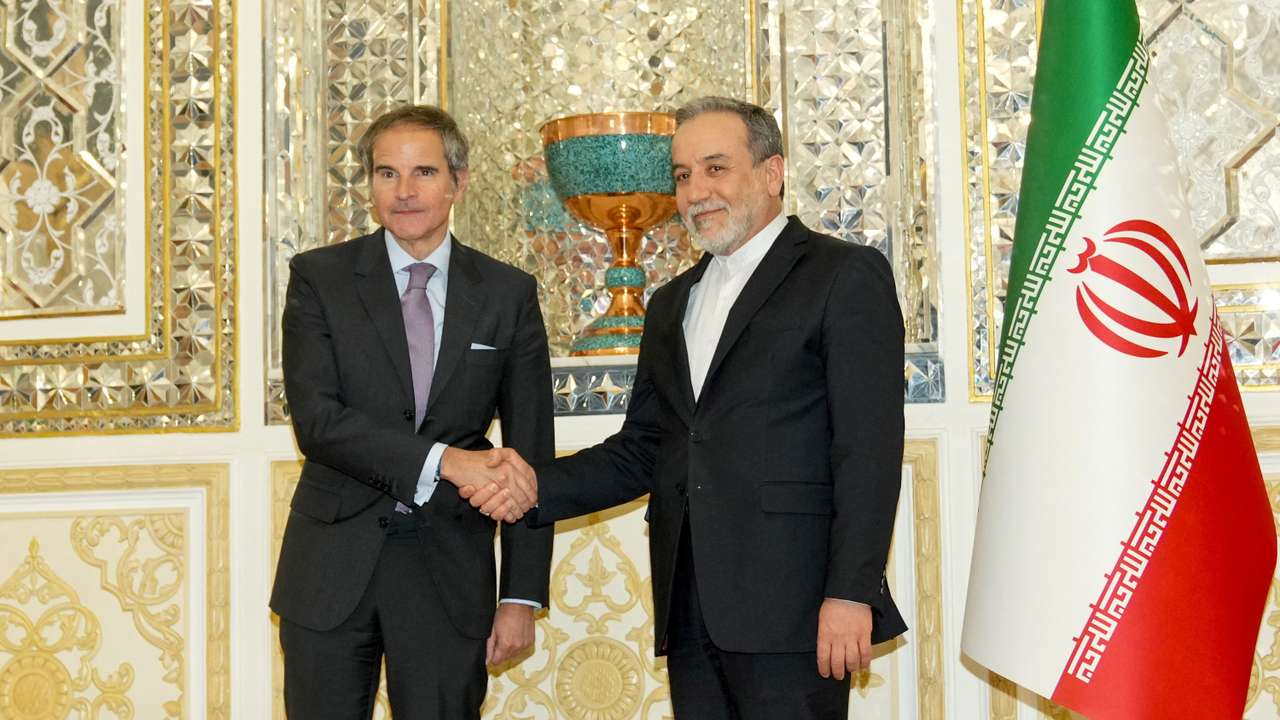UN nuclear watchdog team in Iran for technical talks
- #Americas
- #Asia
- #Pacific
- #Conflicts
- #War
- #Peace
- #Defense
- #Diplomacy
- #Foreign Policy
- #Europe
- #Middle East and Africa
- #Energy Region Europe
- #Middle East
- #Africa
- #Emerging Market Countries
- #International Atomic Energy Agency
- #International Agencies
- #Treaty Groups
- #Energy Region Middle East
- #North America
- #Nuclear Armaments
- #Nuclear Proliferation
- #government
- #Politics
- #US President
- #International
- #National Security
- #South-West Asia
- #Gulf
- #United Nations
- #Americas
- #Asia
- #Pacific
- #Conflicts
- #War
- #Peace
- #Defense
- #Diplomacy
- #Foreign Policy
- #Europe
- #Middle East and Africa
- #Energy Region Europe
- #Middle East
- #Africa
- #Emerging Market Countries
- #International Atomic Energy Agency
- #International Agencies
- #Treaty Groups
- #Energy Region Middle East
- #North America
- #Nuclear Armaments
- #Nuclear Proliferation
- #government
- #Politics
- #US President
- #International
- #National Security
- #South-West Asia
- #Gulf
- #United Nations

A technical team from the International Atomic Energy Agency has arrived in Iran for talks with nuclear experts, a foreign ministry spokesperson said on Monday, as a follow up to the U.N. nuclear watchdog chief's visit to Tehran earlier this month.
"The delegation arrived in Iran and will hold technical talks with Iranian experts today, including on safeguards," Esmaeil Baghaei said during a weekly press conference.
Last week, Iran and the United States held a third round of nuclear talks in Oman, where technical-level negotiations were also held.
Following the conclusion of these talks, Iran's foreign minister said IAEA experts might join the next round of Iran-U.S. nuclear talks due on Saturday.
Visiting Tehran on April 17, IAEA Chief Rafael Grossi said his agency could help achieve a positive outcome in the negotiations.
In 2018, Trump withdrew the U.S. from a 2015 nuclear pact between Iran and major world powers, leading Iran to subsequently surpass that deal's uranium enrichment limits and limit the IAEA's oversight.
In February, the IAEA released a report saying the current situation is "of serious concern" as Tehran is enriching uranium to up to 60% purity, near weapons grade. Tehran has long denied seeking nuclear weapons.
This article was produced by Reuters news agency. It has not been edited by Global South World.